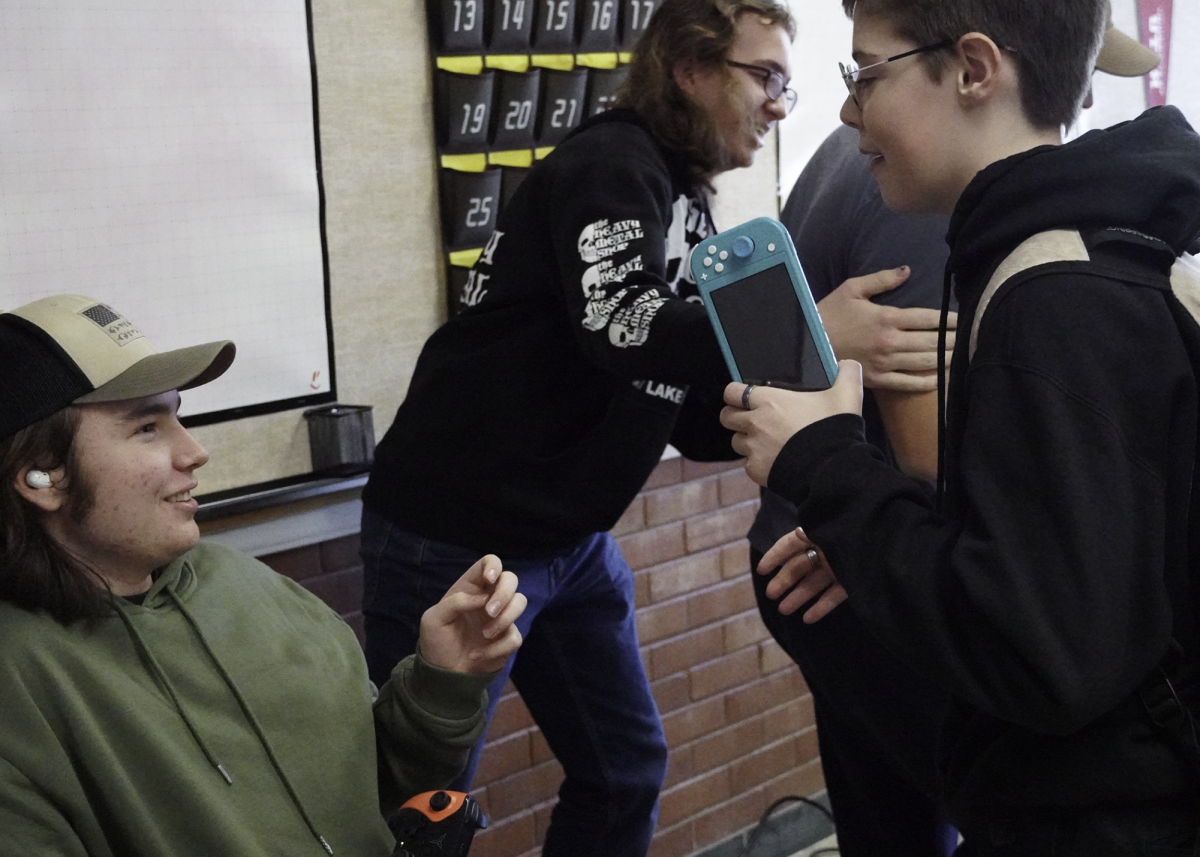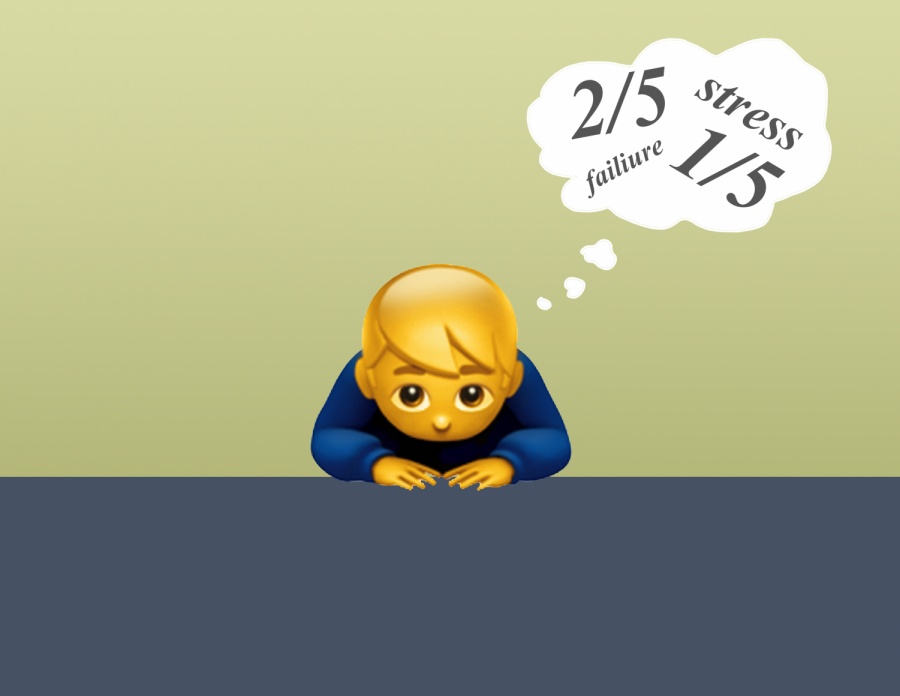AP and IB Students Stressed Over Changes to Testing
April 20, 2020
COVID-19 has not only changed the way we take classes, it has also changed how we test.
The month of April is usually characterized by review sessions and frantic studying in preparation for AP and IB tests that would take place in May as overloaded students make one final push before the end of the school year.
With the practice of social distancing underway, testing as we did before—gathering in the library, gym, or classroom, waiting at your desk to rip open the plastic seal of the exam, the bubbling in of the scantron sheets with your No. 2 pencil—is no longer an option.
In response to the situation, IB has cancelled May testing entirely. IB officials have chosen to calculate predicted scores instead, factoring in coursework and Internal Assessments, which will now be externally assessed by IB graders rather than teachers.
The College Board has approached the problem by putting AP tests into an online format that can be taken at home from a computer, tablet or phone: a 45 minute, open-note test, including one or two free response questions, focusing only on topics that teachers are expected to have covered in their classes by early March.
Students and teachers are left to deal with these changes as best they can.
Simone Driscoll, a Highland junior who is taking four AP classes, is worried about the new format of the test, which emphasizes FRQs, something she considers a personal weakness. The multiple choice section was something she had been counting on to get a good score.
Tera Hunter, an AP art history teacher at Highland, recognizes this concern and plans to spend the time remaining before the test to help her students strengthen their skills in FRQ writing.
“I am worried that the balance between multiple choice questions, which we have been training for all year, and free response essays may hurt some of my students,” Hunter said. “I’m going to spend the next few weeks reinforcing how to create an effective essay response.”
In addition to the new format, there is also the concern of academic honesty.
“I know personally that I’m not going to cheat, but I think others might,” Driscoll said. “They could text each other, their phones could be right next to them…there’s no way of restricting people being online or on their phones.”
Hunter, though similarly expecting some students to cheat and completely willing to help prevent this in any way she can, has faith that most of her students will practice academic honesty.
“I believe that my students will be willing to do their own work and show how much they know,” Hunter said. “The test answers will be made available to the teachers so we can check them. I’m willing to help point out any discrepancies I see and help to get the most honest results possible.”
The shifting of AP tests to an online format also brings up the question of where that leaves students who don’t have internet access or access to a device from which they can take the test.
This was one of the main concerns with closing school, and our district responded by providing laptops that can be checked out by students who need them. They are still available to be picked up next week, Monday through Friday from 9am-2pm, from East High School, Hillside Middle School, Liberty Elementary, Mountain View Elementary, and Rose Park Elementary.
The district is also working with Comcast to offer Internet Essentials, which includes two months of free internet service, for those who need it. You can call 855-846-8376 or apply online at www.InternetEssentials.com.
Hopefully, these measures will help AP students gain access to the test if they need it.
Driscoll says she would prefer the tests to be postponed entirely.
“Have people review the material and just have the test later,” Driscoll said. “I know they want to do it when it’s fresh in your mind but how many people are going to get 5s because they have a phone that’s like right next to them and it’s at home so it’s open book too.”
Though the use of video conferencing and online platforms like Canvas and Nearpod have made the transition a lot easier and given teachers the tools necessary to keep teaching their students and help them review for their exams, the loss of the routine and learning environment that came with school has made it difficult for some students to maintain focus on completing assignments and preparing for testing.
“I have a lot of assignments and for me I keep feeling like I’m on break so I’m not taking my time seriously and then I’ll be like oh shoot I have a bunch of stuff due,” Driscoll said. “I’ll get distracted really easily and then I don’t manage my time very well so I end up like cramming or turning in assignments late.”
Roma Maloney, a senior IB student, says that the uncertainty of the current situation is what has been causing her the most stress.
“I don’t know if we’ll go back to school or if we’ll have a graduation or if I’ll even be able to live on a college campus this fall,” Maloney said. “If I knew what to expect it wouldn’t be as bad, but right now I just don’t know what to prepare for.”
She says the information that IB has released is a bit vague, as they still have not detailed exactly how predicted scores will be calculated, and recent reversing of decisions on deadlines for Internal Assessments has been a source of anxiety for Maloney about whether more decisions could be reversed.
The increased focus on the written Internal Assessments rather than the External Assessments creates a concern for IB students similar to that of AP students who had been counting on multiple choice, putting unexpected weight on components that may have been a weak spot for some students.
“There are students who tend to do better on tests than IAs and vice versa, so their scores could be impacted,” Maloney said.
Though Maloney would have preferred to take online tests and is unsure whether the method IB is choosing to give students test scores will be completely fair, she understands why they made their decision.
“It would be really difficult for them to justify giving the tests since most classes had not started reviewing when we went into quarantine,” Maloney said. “Personally, I would have preferred to take online tests…however it does lift a lot of stress about preparing for the tests on my own.”
In the end, Hunter says that her personal goal with her AP classes is to help her students gain and retain valuable knowledge, and that will happen regardless of how the tests change.
“My students have covered 90% of the content and even if they aren’t testing on the info, they have an incredible knowledge of Art History that they can carry with them their whole lives,” Hunter said. “This is the reason I really teach the class, the test is really just a chance for them to brag about that knowledge.”
Bracken says that the change that has taken place in the way we learn as a result of this situation prompts us to ask important questions about why we go to school.
“Basically, it forces everyone to ask several questions…Why do we take these classes? What is the point of school?” Bracken said. “I think students need to keep in mind that learning is fun and inherently valuable…this crisis is an opportunity to find your inner learner.”
The uncertain nature of this crisis means that nothing is set in stone and information is constantly being updated. The College Board website has a page for AP updates where you can find test dates and information about the new exam format. They also have a YouTube channel where you can find playlists to help review for your exam. The International Baccalaureate has a page on their website for coronavirus updates which includes answers to frequently asked questions.




























